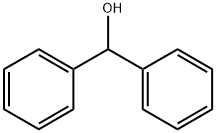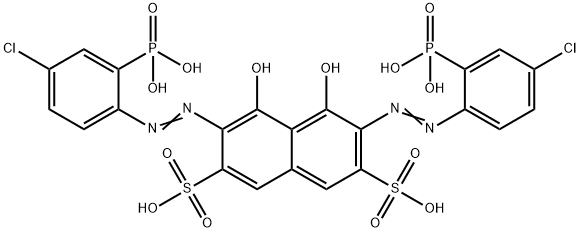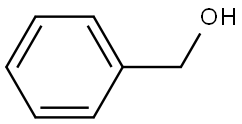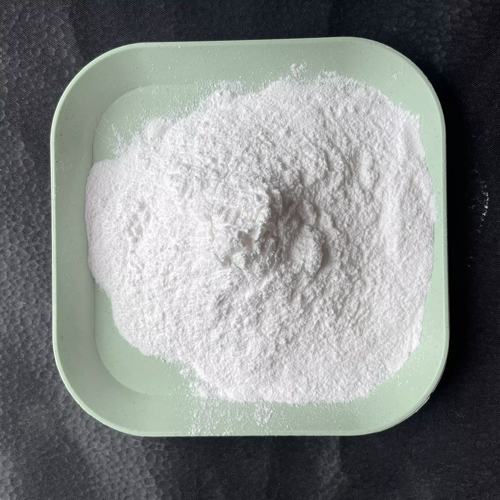3-Hydroxy-4-methoxybenzyl alcohol
Synonym(s):Isovanillyl alcohol
- CAS NO.:4383-06-6
- Empirical Formula: C8H10O3
- Molecular Weight: 154.16
- MDL number: MFCD00004644
- EINECS: 224-489-7
- SAFETY DATA SHEET (SDS)
- Update Date: 2024-10-28 23:16:16

What is 3-Hydroxy-4-methoxybenzyl alcohol?
Chemical properties
White crystalline
The Uses of 3-Hydroxy-4-methoxybenzyl alcohol
3-Hydroxy-4-methoxybenzyl alcohol was used in preparation of 2-hydroxymethyl-5-methoxy-2,5-cyclohexadiene-1,4-dione by oxidation with Fremy′s salt.
Synthesis
3-Hydroxy-4-methoxybenzyl alcohol is synthesised using isovanillin as raw material by chemical reaction. The specific synthesis steps are as follows:
In a round-bottom flask equipped with magnetic stirrer was added 15 sodium borohydride (0.2mmol; 0.01g) to the solution of 9 1 (0.2mmol; 0.03g) prepared in ethanol (1mL). The mixture was stirred at room temperature for 30min. The consumption of all starting material was detected by thin layer chromatography (TLC); the solvent was evaporated under reduced pressure. Subsequently, 10mL of saturated NaCl solution was added and then extracted with ethyl acetate (3×10mL). The organic phase was dried over anhydrous MgSO4, filtered and evaporated, providing 0.03g of colorless oil, 90% yield of 3-Hydroxy-4-methoxybenzyl alcohol.
Properties of 3-Hydroxy-4-methoxybenzyl alcohol
| Melting point: | 135-137 °C (lit.) |
| Boiling point: | 315.8±27.0 °C(Predicted) |
| Density | 1.226±0.06 g/cm3(Predicted) |
| storage temp. | Inert atmosphere,Room Temperature |
| solubility | soluble in Methanol |
| form | powder to crystal |
| pka | 9.75±0.10(Predicted) |
| color | White to Almost white |
| BRN | 1867860 |
| CAS DataBase Reference | 4383-06-6(CAS DataBase Reference) |
| NIST Chemistry Reference | 3-Hydroxy-4-methoxybenzyl alcohol(4383-06-6) |
Safety information for 3-Hydroxy-4-methoxybenzyl alcohol
| Signal word | Warning |
| Pictogram(s) |
 Exclamation Mark Irritant GHS07 |
| GHS Hazard Statements |
H315:Skin corrosion/irritation H319:Serious eye damage/eye irritation H335:Specific target organ toxicity, single exposure;Respiratory tract irritation |
| Precautionary Statement Codes |
P261:Avoid breathing dust/fume/gas/mist/vapours/spray. P264:Wash hands thoroughly after handling. P264:Wash skin thouroughly after handling. P280:Wear protective gloves/protective clothing/eye protection/face protection. P304+P340:IF INHALED: Remove victim to fresh air and Keep at rest in a position comfortable for breathing. P305+P351+P338:IF IN EYES: Rinse cautiously with water for several minutes. Remove contact lenses, if present and easy to do. Continuerinsing. P405:Store locked up. |
Computed Descriptors for 3-Hydroxy-4-methoxybenzyl alcohol
3-Hydroxy-4-methoxybenzyl alcohol manufacturer
Syn Finechem Laboratories Pvt Ltd.
BASR Fine Chemicals Pvt. Ltd.
New Products
(S)-3-Aminobutanenitrile hydrochloride 4-Methylphenylacetic acid N-Boc-D-alaninol N-BOC-D/L-ALANINOL Tert-butyl bis(2-chloroethyl)carbamate 3-Morpholino-1-(4-nitrophenyl)-5,6-dihydropyridin- 2(1H)-one Furan-2,5-Dicarboxylic Acid Tropic acid 1-Bromo-3,5-Di-Tert-Butylbenzene S-2-CHLORO PROPIONIC ACID ETHYL ISOCYANOACETATE 2-Bromo-1,3-Bis(Dimethylamino)Trimethinium Hexafluorophosphate 4-IODO BENZOIC ACID 3-NITRO-2-METHYL ANILINE 1-(2,4-DICHLOROPHENYL) ETHANAMINE (2-Hydroxyphenyl)acetonitrile 4-Bromopyrazole 2-(Cyanocyclohexyl)acetic acid 4-methoxy-3,5-dinitropyridine 1-(4-(aminomethyl)benzyl)urea hydrochloride 2-aminopropyl benzoate hydrochloride diethyl 2-(2-((tertbutoxycarbonyl)amino) ethyl)malonate tert-butyl 4- (ureidomethyl)benzylcarbamate Ethyl-2-chloro((4-methoxyphenyl)hydrazono)acetateRelated products of tetrahydrofuran








You may like
-
 4383‐06‐6 Isovanillyl alcohol 98%View Details
4383‐06‐6 Isovanillyl alcohol 98%View Details
4383‐06‐6 -
 4383-06-6 98%View Details
4383-06-6 98%View Details
4383-06-6 -
 Isovanillyl alcohol 4383-06-6 98%View Details
Isovanillyl alcohol 4383-06-6 98%View Details
4383-06-6 -
 Isovanillyl Alcohol CAS 4383-06-6View Details
Isovanillyl Alcohol CAS 4383-06-6View Details
4383-06-6 -
 3-Hydroxy-4-Methoxybenzyl Alcohol CAS 4383-06-6View Details
3-Hydroxy-4-Methoxybenzyl Alcohol CAS 4383-06-6View Details
4383-06-6 -
 3-Hydroxy-4-methoxybenzyl alcohol CAS 4383-06-6View Details
3-Hydroxy-4-methoxybenzyl alcohol CAS 4383-06-6View Details
4383-06-6 -
 14714-50-2 (2-Hydroxyphenyl)acetonitrile 98+View Details
14714-50-2 (2-Hydroxyphenyl)acetonitrile 98+View Details
14714-50-2 -
 118753-70-1 98+View Details
118753-70-1 98+View Details
118753-70-1